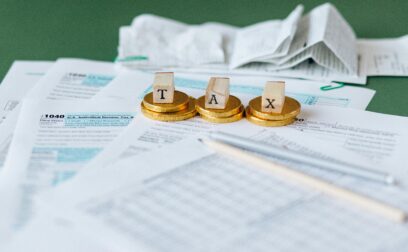TABLE OF CONTENTS
While Nevada is best known for its thriving entertainment industry, economic development initiatives also make it an exciting place to own or start a small business. One of the first steps in expanding or starting a small business anywhere is finding the right funding, which may include a small business loan.
Learn more about small business loans in Nevada, including what to look for, how to apply and alternative financing options.
In Nevada, small businesses have a variety of small business loan options to choose from, depending on their financial needs. Some of the most popular options include:
Other types of small business loans are available for specific purposes, such as equipment financing for organizations that need equipment such as farm tools, manufacturing equipment or vehicle fleets. Many financial institutions focus on equipment loans to allow businesses to buy or lease equipment, using the equipment itself as collateral.
Business grants are a popular but competitive option for small businesses because they don’t have to be repaid. Grants may be offered by government agencies at the local, state or federal level, community organizations, economic development agencies or private industries. Most grants are tailored to specific industries or businesses with mission-based or community goals, and finding the right grant to apply for is half the battle.
Start with online research including government websites, grant databases, and business support organizations can help identify current grant opportunities. The Nevada Department of Business and Industry and local economic development offices can also be valuable starting points.
Networking with other small businesses and attending relevant events in Nevada can provide you with tips on where to find grants and how to apply. It can be a good idea to seek guidance from small business development centers and other business support services. They can provide insights into available grants, assist with the application process and offer valuable advice.
Remember to carefully review eligibility criteria, application requirements, and deadlines for each grant and customize your application to meet specific grant requirements and clearly describe how the funds will benefit your business.
While every lender will have their own application process, applying for a small business loan in Nevada will generally follow these steps:
Again, different lenders and loan programs may have different steps to their application process, but understanding what to expect can help you be prepared and streamline the process.
There are many reasons you might decide not to get a business loan, including qualifications, affordability or how quickly you need the funds. Business owners in Nevada have many other funding options available, including:
Every business will have its own funding needs and you may find a combination of the above methods works best for you.
While credit scores aren’t the only qualifications a lender will use to determine whether or not to lend to you, they are one of the most important indicators of creditworthiness. A higher credit score not only increases your chances of being approved for a loan; it also opens you up to lower interest rates and more favorable terms.
Credit scores in the “good” range (700 or higher) are most likely to be able to secure a traditional business loan and get lower interest rates on other types of loans. If your credit score is between 650-680, you may still qualify for many SBA loan programs, although you may be required to supply a downpayment, collateral or personal guarantee to secure the loan. Alternative lenders will sometimes offer loans to those with credit scores as low as 550, but they can charge very high interest rates to cover their risk in doing so.
Your business plan, business history and financials can also help you make a case for why you deserve a loan, so make sure you are ready to present those to your lender. You can also work on your credit score over time and wait to apply for a business loan until you have improved the score.
Interest rates for business loans in Nevada vary due to a few factors, including:
For instance, SBA loans are tied to the U.S. Prime rate, which fluctuates based on the market. In 2023, most SBA loans averaged interest rates between 11.5-16%. Traditional loans for businesses in 2023 averaged between 7-9%, while alternative loans and online loans had a much wider average variance: 3.5-60.9%. Some online loans will offer interest rates as high as 99% for borrowers deemed to be more risky to lend to.
It’s important to understand your lender’s rates and terms before signing any loan agreement. Again, it’s a good idea to use a loan calculator to determine if you can afford a loan. You can always wait to apply until your qualifications can get you better interest rates.
From the minute you submit your application until the funds are available in your account can vary widely depending on the lender, type of loan, amount of loan and your qualifications. Most traditional loans have longer processing times, which can take several weeks or even months due to underwriting and approval processes. SBA loans can take up to six months for the funds to land in your account.
In contrast, online lenders and alternative financing options may offer quicker application, approval and funding timelines. Some lenders can provide a decision within a few days and, if you’re approved, the loan funds may be disbursed very quickly after that.
To speed up the process as much as you can, it’s important to have your financial documents in order and be responsive to any requests from the lender.
While it may seem daunting, having a strategy can help you find the best funding in Nevada. Start by assessing your business’s financial needs, considering the purpose of the funds, the amount required and your ability to repay.
Research potential funding sources, including traditional banks, credit unions, online lenders and government-backed programs, both locally and nationally. Compare the terms, interest rates and eligibility criteria offered by different lenders to identify the most suitable option for your business.
Explore alternative funding options such as invoice financing, merchant cash advances and peer-to-peer lending. Each option has its own advantages and considerations, so carefully weigh the pros and cons based on your business’s unique situation.
Consider seeking guidance from small business development centers or other business support organizations in Nevada. They can provide insights into available funding sources, assist with the application process and offer valuable advice based on their knowledge.
Network with other business owners, attend industry events and leverage local chambers of commerce is another way of finding information on funding opportunities. Establishing connections within the business community can provide valuable insights and recommendations.
If you’re ready to expand or start your business in Nevada, get Swoop to help you every step of the way. We offer a variety of funding options and resources to drive your business toward success. Get started today.
Daire made it happen! There is no doubt that Swoop sped up the process and found lenders that worked to our time scale rather than the other way round
Hocque Figureoa
Joint owner, F45 Virginia
Swoop was actually very helpful in helping us get our initial fundraising in place. Swoop was able to connect us with investors, with grant financing options and debt financing options.
Viler Lika
Founder, SingleKey
Pedja was amazing. Super supportive, understanding of our needs and wasn't pushy at all. We've been going back and forth with Swoop for over a year inquiring about different financing options and they were patient until we were ready!
Chris Skeates
F45 Multi-studio owner
Join the 95,000+ businesses just like yours getting the Swoop newsletter.
Free. No spam. Opt out whenever you like.
Kingfisher Way, Silverlink Business Park, Newcastle upon Tyne, NE28 9NX, UK
View in Google Maps35 Bull Street, Lewis Building, Birmingham B4 6AF, UK
View in Google MapsAberystwyth Innovation and Enterprise Campus
Gogerddan Campus
Aberystwyth University
Ceredigion
SY23 3EE
Dogpatch Labs, The CHQ Building, Custom House Quay, Dublin, Ireland
View in Google MapsSuite 801, Level 8, 84 Pitt Street, Sydney, NSW 2000, Australia
View in Google Maps43 W 23rd St, New York, NY 10010, United States
View in Google Maps21 Dreyer Street, Cape Town, South Africa, 7708
View in Google MapsClever finance tips and the latest news
Delivered to your inbox monthly
Join the 95,000+ businesses just like yours getting the Swoop newsletter. Free. No spam. Opt out whenever you like.




